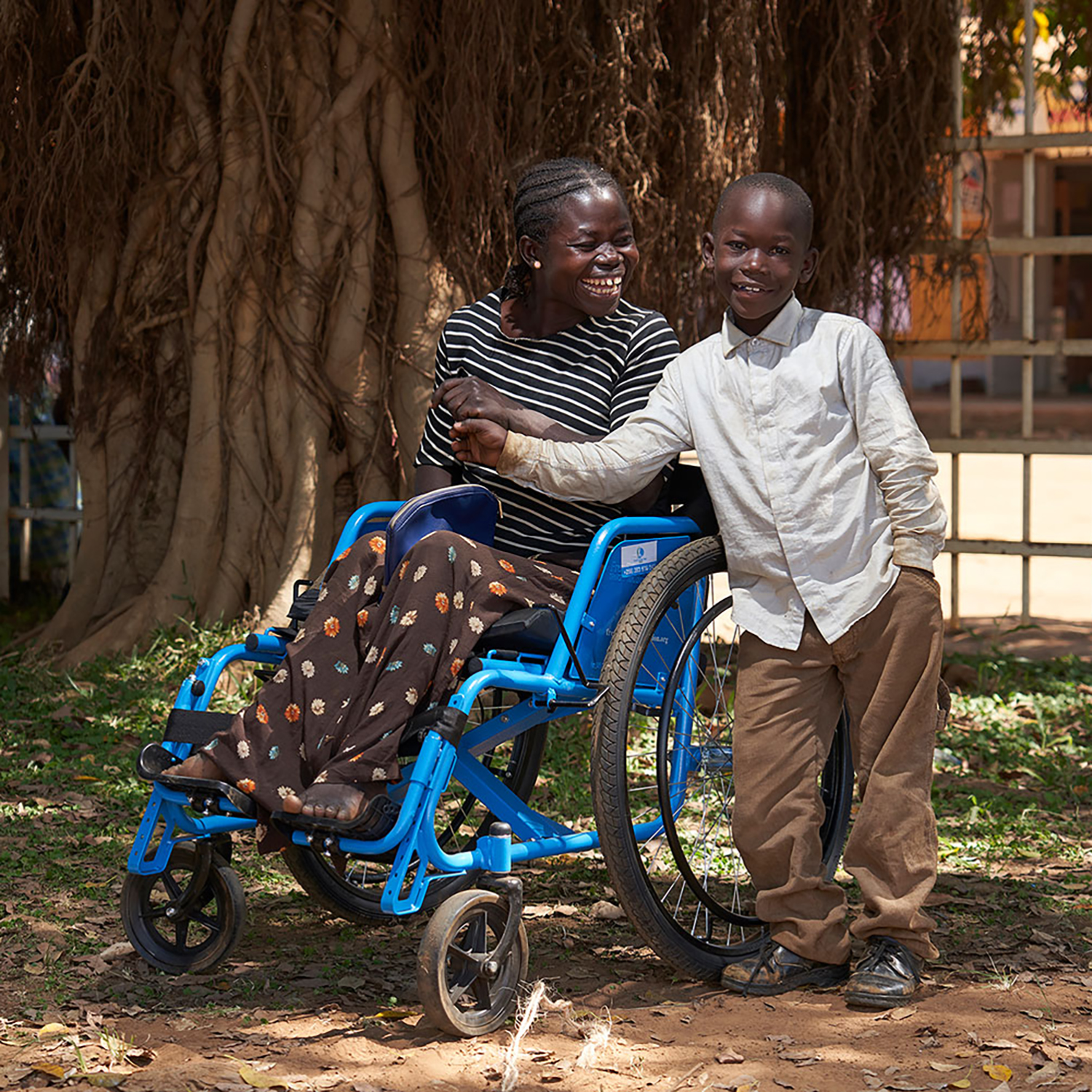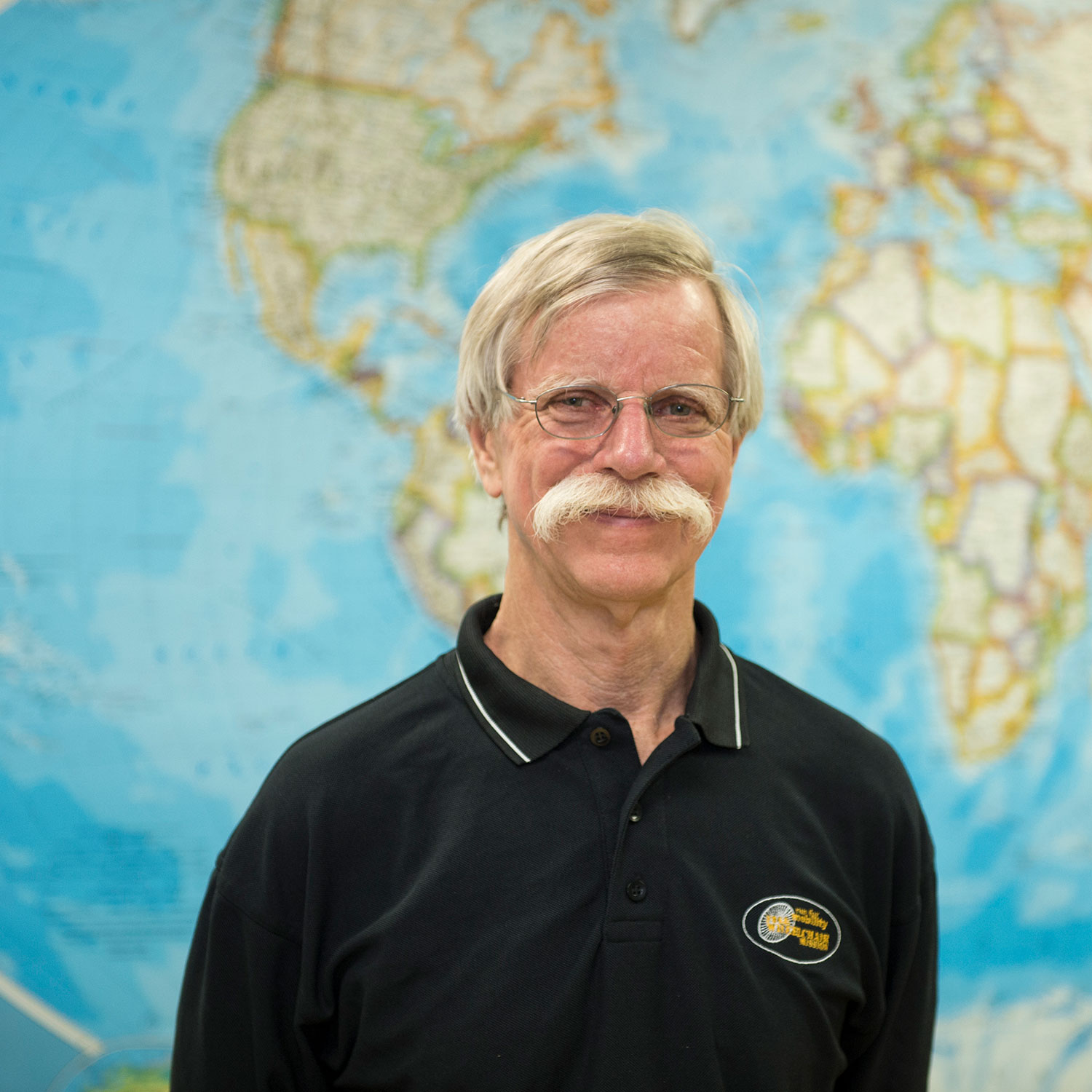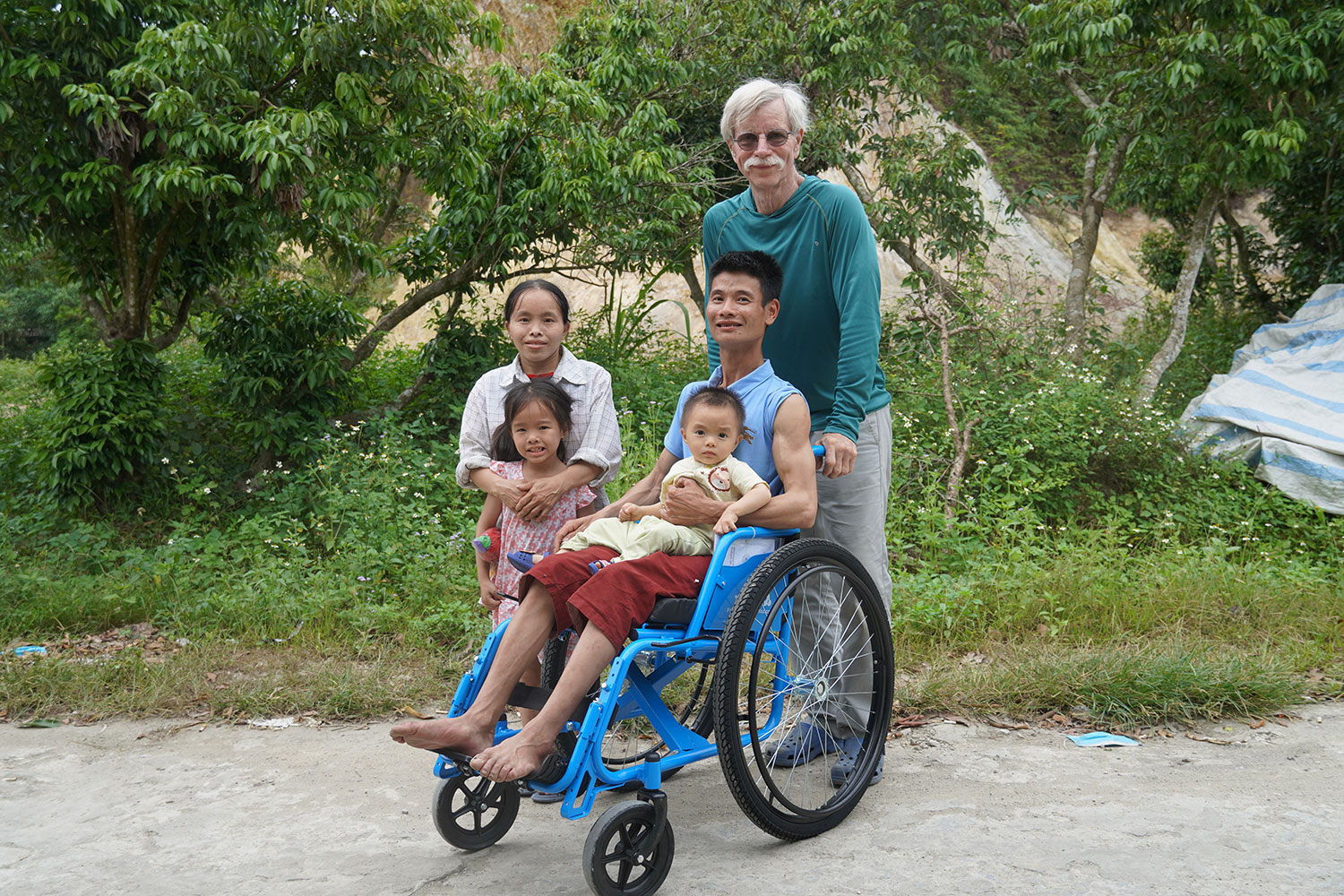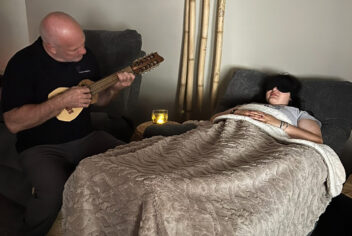Soon, 625 people across the globe will be able to enjoy dramatically improved mobility, thanks to a nonprofit with the mission of manufacturing low-cost, durable wheelchairs and distributing them for free to people living with disabilities in developing nations.
This fall, Don Schoendorfer, president and founder of Free Wheelchair Mission, was honored by AARP as a winner of the organization’s Purpose Prize and the winner of their Inspire Award — awarding the Irvine, CA-based nonprofit $60,000 in prize money.
The Inspiration
Free Wheelchair Mission traces its origins back to 1979, when Don Schoendorfer and his wife took a vacation to Morocco.
Within a few hours of arriving, the young couple found themselves wandering into a medina in a very old part of the city, where they spotted a woman — unable to walk and without a wheelchair — dragging herself across the street with her fingernails.
Schoendorfer recalled the shock and dismay he felt as passers-by breezed past the woman without so much as a glance.
“People stepped over her like she was some kind of rubbish,” he said. “It just stopped my heart.”
For the next 20 years, Schoendorfer’s life revolved around raising a family and navigating a successful career in biomedical engineering, where his accomplishments included the invention of devices designed to aid the process of dermal diagnostics and blood cell separation.
But the image of the woman struggling through the Moroccan street never left him, and by 1999, he felt certain that he was meant to do something about it.
“I realized that there might be some better uses of my time and talents than just working as an engineer,” Schoendorfer explained. “So, I decided that maybe I could do something about the need of that woman.”
When he began researching mobility issues outside the United States, he discovered that more than 80 million people around the world were facing the same problem as the woman in Morocco — living with limited mobility and without access to a wheelchair.
The Wheelchair Built in a Garage
Schoendorfer began to puzzle out how to create a wheelchair that would be sturdy enough to handle the often-rough terrain of developing countries, while still providing mobility and comfort to the user.
The other challenge was how to keep the manufacturing costs low so that the wheelchairs could be provided at no cost.
“We couldn’t sell anything,” Schoendorfer said. “So that would mean an inexpensive wheelchair — it had to be very inexpensive, yet durable and functional.”
By 2001, using little more than white resin patio chairs, bicycle wheels, and simple materials available in any hardware store, he had put together a prototype that was stable, comfortable, and able to traverse uneven ground.

A mother enjoys a moment together with her son as she gets acclimated to her new wheelchair, provided by Free Wheelchair Mission.
Soon, he had made 100 wheelchairs in his garage, but wasn’t sure of what he should do next.
When an opportunity to travel to India with a church organization presented itself, Schoendorfer brought along four of his wheelchairs to distribute — and their life-changing potential quickly became apparent.
The very first person to receive a wheelchair was a young man who, unable to walk and unable to afford any kind of mobility device, had entirely depended on his parents’ ability to physically carry him from place to place — which meant only one of his parents could work at any time, while the other served as his caregiver.
When the son received his wheelchair, Schoendorfer said, life soon changed dramatically for the entire family.
“It made such an impact on everyone — it completely erased the biggest weight that this family was carrying,” he said. “Suddenly, both parents could work, they could bring their son with them, suddenly their income doubled.”
“I wasn’t expecting that kind of success in any way.”
Launching Free Wheelchair Mission
When Schoendorfer returned home from India, he initially felt that his role was complete, that he’d proven what he set out to accomplish.
At first, he admitted, he’d been content to document and publish everything he’d done, clear the remaining 96 wheelchairs out of his garage, and move aside to allow someone else to expand on the concept he’d proven.
But, many people, inspired by the impact of his wheelchairs, were eager to know what he had planned next.
“People would come up to me and say: ‘You’ve got to do the next step, too. You’ve got to start a nonprofit and, by the way, I’m going to send you a check for some money.’”
“They were much more knowledgeable and wiser than I was,” Schoendorfer said with a chuckle.
Support came from all sides, including his family.
Schoendorfer’s wife encouraged him to make his new mission his primary job, taking on a new job herself to support their family as the mission began to grow.
“I was going into a field I had no knowledge about, but I was open to having help from anybody, including God,” he said, adding “The second-most valuable book I’ve ever read is ‘Nonprofits for Dummies.’”
Slowly but surely, the beginnings of a nonprofit started to take shape as Schoendorfer learned the ins and outs of entering the nonprofit world.
In 2001, Free Wheelchair Mission officially opened its doors.
The Nonprofit Today
22 years later, Free Wheelchair Mission has become a thriving nonprofit, with 35 full-time staff members.
What began as one man building a prototype in his garage has now resulted in 1.4 million wheelchairs distributed to people in 94 developing countries around the world.
Today, with the help of manufacturing and shipping partners, the nonprofit is able to create a wheelchair and deliver it where it needs to go — all for only $96.
Once the wheelchairs arrive in-country, vetted and trained partner organizations are responsible for presenting them to the people that need them most.
Schoendorfer is still deeply involved with the design of the wheelchairs, now in their third generation of models — more durable and with customizable features that allow them to be adapted to each person’s specific needs.
He makes a point of regularly going along to see the people receive their wheelchairs, and the joy of witnessing them experience the mobility that many take for granted has never lessened.
“They don’t even look the same (after receiving their wheelchairs),” he said. “That’s because you’re looking at them eye-to-eye.”
The Awards Expand Capacity
Schoendorfer said he was surprised to be nominated for the Purpose Prize, receiving notification that he’d been nominated six months before the awards were announced in September.
“That was quite an experience,” he said. “(AARP) was a league much higher than the league we usually play in — maybe the timing was just right.”
Normally, Schoendorfer said, Free Wheelchair Mission is able to fund its mission through donations, fundraising events, and other contributions.
“We knock on a lot of doors and host events,” he explained. “We also have a big event in September called Miracle of Mobility.”
The $60,000 windfall will make an enormous impact on the people that Free Wheelchair Mission serves, enabling them to get wheelchairs to the people that need them much sooner than normal.
At the end of the day, Schoendorfer said, the important thing that he’s learned from his journey is that living in a place of abundance like the United States places a responsibility on those who can to share that abundance with others.
“We are blessed beyond means, and the reason we’re being blessed is so we can help,” Schoendorfer said. “We’re just doing what we’re supposed to do.”

Don Schoendorfer, president and founder of Free Wheelchair Mission. His dream of creating and distributing rugged wheelchairs has brought mobility to more than a million people around the world.





